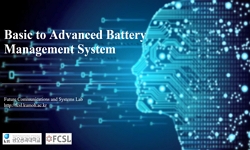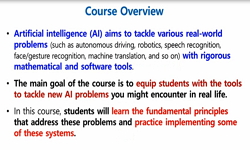Today we can run across articles without saying Artificial Intelligence(AI) will change everything. Is this true in the context of the legal profession? Some claim an “AI apocalypse” or “Doomsday.” Even some serious legal experts add up and en...
http://chineseinput.net/에서 pinyin(병음)방식으로 중국어를 변환할 수 있습니다.
변환된 중국어를 복사하여 사용하시면 됩니다.
- 中文 을 입력하시려면 zhongwen을 입력하시고 space를누르시면됩니다.
- 北京 을 입력하시려면 beijing을 입력하시고 space를 누르시면 됩니다.

인공지능과 법체계–전자인격론의 모순과 정보권한과의 갈등을 중심으로– = Artificial Intelligence and autonomous legal system-The Weakness of E-Personality and Conflicts on the Right to Disappear-
한글로보기https://www.riss.kr/link?id=A106279697
- 저자
- 발행기관
- 학술지명
- 권호사항
-
발행연도
2019
-
작성언어
Korean
- 주제어
-
등재정보
KCI등재
-
자료형태
학술저널
-
수록면
463-514(52쪽)
- DOI식별코드
- 제공처
- 소장기관
-
0
상세조회 -
0
다운로드
부가정보
다국어 초록 (Multilingual Abstract)
Today we can run across articles without saying Artificial Intelligence(AI) will change everything. Is this true in the context of the legal profession? Some claim an “AI apocalypse” or “Doomsday.” Even some serious legal experts add up and enchant the scenario. Much of press reporting is hype or clickbait, however the debate within the practice of law is that we need to look upclose to AI and its substantial impact.
Simply, AI means the intelligence exhibited by machine or software. Software can analyze words: It can automatically classify and search for paragraphs, and compare documents and highlight changes. Technically it is not a firm entity as it firstly planned. Some realized; the others accidently done. It is a huge leftover in many purposes and projects. Legal and philosophical assessments reach its status in various aspects. Legal approaches are dominated by negative voices; small group provocate that the impact of AI on the legal practice will be tremendously. It could learn over time human-like task: AI/machine learning can use big data to understand, then the learning makes it go beyond human.
We do not believe this. AI is an algorithm-based program driven by many electric devices. Furthermore there is a wild river between the value of technology and legal premise. Whether it gets or not is always in our hands. It casts a doubt that the debate goes through unexpected vaguness.
국문 초록 (Abstract)
인공지능은 간략하게 말하면 비인격적 인지체계(the intelligence exhibited by machine or software)이다. 인공지능은 의도된 단일 기술이 아니라 의도와 달리 실현된 것도 있고, 계획과 달리 우연히 활성...
인공지능은 간략하게 말하면 비인격적 인지체계(the intelligence exhibited by machine or software)이다. 인공지능은 의도된 단일 기술이 아니라 의도와 달리 실현된 것도 있고, 계획과 달리 우연히 활성화된 요소도 있다. 그래서 현재와 같은 모습으로 나타나기까지 많은 계획과 경험의 통합이 필요했다. 최근 철학이나 법학에서도 인공지능의 지위 문제를 포스트 휴먼, 인공지능, 제4차 산업혁명 등의 주제로 논의하고 있다. 인공지능의 현실 분석을 넘어서 비인격적 지능에 대한 법적 승인(법인격) 가능성을 언급하기도 한다. 또한 인공지능이 적용된 기술결과를 가상으로 전제하여 그에 대한 미래 법적 책임을 다루기도 한다. 어떠한 경우이던 비인격적 지능은 딜레마를 가지고 있다. 프로그램된 기계의 오류를 파악하지 못하는 경우는 별로 없다. 반면에 인간의 정신적 이상 현상은 그 누구도 원인을 분명히 설명하지 못한다. 우리가 ‘지능’이라는 단어를 사용하기 위해서는 최소한 지능이 발현되는 인간의 의식(마음)의 요소가 기계에 의해 어떻게 재현되는지 설명해야 한다. 인간의 마음이 분석되지 못하면, 그 재현 가능성도 함께 애매해진다. 이 글은 인공지능 기술은 완성된 것도 아니고, 향후 그럴 가능성도 희박할 수 있다는 가설에서 출발한다. 현재의 논의를 보면 인공지능의 재현능력에 대한 환상에 의존하거나 불충분한 기술적 이해로 인한 오류와 혼란도 있는 듯하다. 최종적으로 기술의 가치와 사회적 수용은 별개이다. 또한 인공지능 기술의 기반을 위한 법적 여건이 최근 변화되고 있는 점도 감안해야 한다.
1 임석순, "형법상 인공지능의 책임귀속" 한국형사정책연구원 27 (27): 1-23, 2016
2 류인모, "현대과학기술의 발전과 위험사회의 형법" 한국비교형사법학회 4 (4): 1-22, 2002
3 Lessig, "코드 2.0" 나남 2009
4 승재현, "커넥톰. 뇌의 지도" 김영사 2012
5 Luhmann, "체계이론 입문" 새물결 2014
6 안성조, "지능형 자율로봇의 형사책임. 자율주행차를 한 예로" 2017
7 김민호, "지능정보사회의 규범설정 기본원칙에 대한 고찰" 법학연구원 28 (28): 281-308, 2016
8 최경진, "잊혀질 권리-개인정보 관점에서" 한국정보법학회 16 (16): 97-120, 2012
9 문재완, "잊혀질 권리의 입법현황과 향후 문제" 2012
10 김재인, "인공지능의 시대. 인간을 다시 묻다" 동아시아 2017
1 임석순, "형법상 인공지능의 책임귀속" 한국형사정책연구원 27 (27): 1-23, 2016
2 류인모, "현대과학기술의 발전과 위험사회의 형법" 한국비교형사법학회 4 (4): 1-22, 2002
3 Lessig, "코드 2.0" 나남 2009
4 승재현, "커넥톰. 뇌의 지도" 김영사 2012
5 Luhmann, "체계이론 입문" 새물결 2014
6 안성조, "지능형 자율로봇의 형사책임. 자율주행차를 한 예로" 2017
7 김민호, "지능정보사회의 규범설정 기본원칙에 대한 고찰" 법학연구원 28 (28): 281-308, 2016
8 최경진, "잊혀질 권리-개인정보 관점에서" 한국정보법학회 16 (16): 97-120, 2012
9 문재완, "잊혀질 권리의 입법현황과 향후 문제" 2012
10 김재인, "인공지능의 시대. 인간을 다시 묻다" 동아시아 2017
11 고인석, "인공지능에 대한 윤리적 철학적 고찰" 2018
12 주현경, "인공지능과 형사법의 쟁점 - 책임귀속을 중심으로 -" 한국형사정책학회 29 (29): 7-31, 2017
13 양천수, "인공지능과 법체계의 변화 ―형사사법을 예로 하여―" 한국법철학회 20 (20): 45-76, 2017
14 조한상, "인공지능과 법, 그리고 논증" 한국법정책학회 16 (16): 295-320, 2016
15 정진명, "인공지능 사회를 대비한 민사법적 과제 연구" 법무부 2017
16 안성조, "인공지능 로봇의 형사책임 ―논의방향의 설정에 관한 몇 가지 발전적 제언―" 한국법철학회 20 (20): 77-122, 2017
17 박광민, "인공지능 로봇의 범죄주체성과 형사책임의 귀속" 법학연구소 20 (20): 153-178, 2017
18 오병철, "인공지능 로봇에 의한 손해의 불법행위책임" 법학연구원 27 (27): 157-231, 2017
19 Marcuse, "이성과 혁명" 중원문화 2008
20 Steiner, "알고리즘으로 세상을 지배하라. 기계 대 인간의 일자리전쟁" 에어콘 2016
21 고인석, "아시모프의 로봇 3법칙 다시 보기: 윤리적인 로봇 만들기" 철학연구회 (93) : 97-120, 2011
22 Bennet, "신경과학의 철학. 신경과학의 철학적 문제와 분석" 사이언스북스 2013
23 Edelman, "신경과학과 마음의 세계" 범양사 2015
24 신동일, "신경(형)법학 이해를 위한 기본 설명" 한국형사정책연구원 24 (24): 5-43, 2013
25 홍의표, "사행산업통합감독에 관한 법 제도 개선방안 연구" 법제연구원 2014
26 김한균, "빅데이터 형사정책의 현안과 과제" 한국형사정책학회 29 (29): 33-60, 2017
27 Kripke, "비트겐쉬타인 : 규칙과 사적언어" 철학과 현실사 2008
28 이상돈, "변화 속의 한국법학 어디로 가고 있나?" (39) : 2002
29 윤재왕, "법체계의 자율성 - 체계이론적 관점에서 본 법과 정치의 관계" 비교법학연구소 50 : 259-317, 2017
30 류인모, "법정보학이란 무엇인가" 법과사회이론연구회 5 (5): 1992
31 이상돈, "법이론" 세창출판사 2005
32 윤지영, "법과학을 적용한 형사사법의 선진화방안(Ⅷ). 인공지능 기술" 한국형사정책연구원 2017
33 Bergson, "물질과 기억" 아카넷 2005
34 Fordor, "마음은 그렇게 작동되지 않는다. 스티븐핑커의 마음은 어떻게 작동하는가에 대한 결정적 반론" 알마 2013
35 김영환, "로봇 형법(Strafrecht für Roboter)?" 한국법철학회 19 (19): 143-168, 2016
36 Pinker, "단어와 규칙" 사이언스북 2009
37 Hillenkamp, "뇌연구, 의사자유, 그리고 형법" 2013
38 탁희성, "뇌과학 발전과 형법적 패러다임 전환에관한 연구(1). 뇌과학과 형법의 접점에 관한 예비적 고찰" 한국형사정책연구원 2012
39 Hallevy, G., "When Robots Kill. Artificial Intelligence under Criminal Law" Northeastern University Press 2013
40 Cornelius, K, "Vertragsabschluss durch autonome elektronische Agenten"
41 Gibson, J. J., "The Perception of the Visual World" Houghton Mufflin 1950
42 Pinker, S, "The Language Instinct. How the Mind Creates Language" Harper Perennial 1995
43 Dewey, J., "The Historic Background of Corporate Legal Personality" XXXV : 1926
44 Siva Vaidhyanathan, "The Googlization of Everythig and the Future of Copyright" 40 : 2007
45 Hastie T, "The Elements of Statistical Learning. Data Mining, Inference, and Prediction"
46 Golumbia, D, "The Cultural Logic of Computation" Harvard University Press 2009
47 Hobsbawm, E., "The Age of Revolution: Europe 1789-1848" Weidenfeld & Nicolson 1965
48 Hofstadter D, "Surfaces and Essence. Analogy as the Fuel and Fire of Thinking" Basic Books 2013
49 Hillenkamp, T., "Strafrecht ohne Willensfreiheit? Eine Antwort auf die Hirnforschung" 2005
50 Kurzweil, R., "Singularity is Near. When Human Transcend Biology" Viking 2005
51 "Searle, Minds, brains, and programs" 3 (3):
52 Simitis, S., "Rechtliche Anwendungsmöglichkeiten kybernetischer Systemen" 1966
53 Teubner, G., "Recht als autopoietisches System" Suhrkamp 1989
54 Zagoskin, A., "Quantum Mechanics. A Complete Introduction, RechYourself" 2015
55 Reich, E.S., "Quantum Computers Move a Step Closer" 467 : 2010
56 Laban, L., "Music Companies: The Big Four Labels" Spinner 2009
57 "Murray Learning series, The Quantum World. The disturbing theory at the heart of reality" New Scientist 2017
58 Wolf, G., "Lösung von Rechtsfällen mit Hilfe von Computern? Bisher nicht genutzte Chancen der Rechtsinformatik Meuer" De Gruyter 2002
59 Chomsky, N, "Language and Mind" Cambridge University Press 2006
60 Glaxton, G., "Intelligence in the Flesh. Why your mind needs your body much more than it thinks" Yale University Press 2015
61 Krämer, K, "Individuelle und kollektive Zurechnung im Strafrecht" Mohr Siebeck 2015
62 Kurzweil, R., "How to Create a Mind. The Secret of Human Thought Revealed" Penguin Books 2012
63 Brewer, B., "Experience and Reason in Perception" 1998
64 "European Parliament resolution of 6 July 2011 on a comprehensive approach on personal data protection in the European Union (2011/2025(INI))"
65 Haft, F., "Einführung in die Rechtsinformatik" DUD 1993
66 Overill, R., "Digital Quantum Forensics: Challenges and Responses" Springer 2014
67 Teubner, G., "Das regulatorische Trilemma. Zur Diskussion um postinstrumentale Rechtsmodelle" 13 : 1984
68 Hilgendorf, E., "Das Recht vor den Herausforderungen der moderne Technik" Nomos 2015
69 Roth, G., "Das Gehirn und seine Wirklichkeit. Kognitive Nuerobiologie und ihre philosophischen Konsequenzen" Suhrkamp 1994
70 Steiner, C., "Automate This. How Algorithm took over our Market" Penguine 2012
71 Schelling, F.W.J, "Antiquissimi de prima malorum humanorum origine philosophematis Genes. Ⅲ. explicandi tentamen criticum et philosophicum"
72 Eysenck, H.J., "Advances in the psychology of human intelligence1 Vol. 3" Erlbaum 1986
73 Wettig S, "A legal analysis of human and electronic agents" 12 : 2004
74 Sidorov, M., "7 Steps to Health. The Big Diabetes Lie" ICTM 2015
75 박성준, "5G 이동통신 기술 동향"
76 김창완, "4차 산업혁명시대의 망 중립성"
77 권헌영, "4차 산업혁명시대 개인정보권의 법리적 재검토" 한국법학원 158 (158): 7-42, 2017
동일학술지(권/호) 다른 논문
-
불법행위법에서의 손해의 개념에 관한 일고찰–DCFR 및 PETL에서의 논의를 참고로 하여–
- 강원대학교 비교법학연구소
- 이동건
- 2019
- KCI등재
-
말레이시아의 이슬람 은행에서의 이슬람법(샤리아)의 지위와 역할에 관한 연구
- 강원대학교 비교법학연구소
- 손태우
- 2019
- KCI등재
-
개도국에서의 친특허정책 도입에 따른 영향–제4차 중국 전리법 개정안을 중심으로–
- 강원대학교 비교법학연구소
- 김대영
- 2019
- KCI등재
-
인공지능시대의 SW특허적격성에 대한 미국의 대응과 시사점–2019 Revised Patent Subject Matter Eligibility Guidance를 중심으로–
- 강원대학교 비교법학연구소
- 정진근
- 2019
- KCI등재




 DBpia
DBpia








